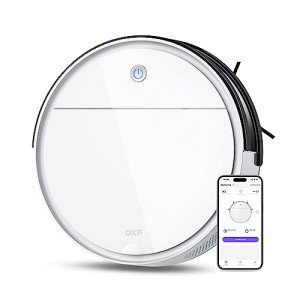The Most Profound Problems In Robot Cleaner
The Rise of Robot Cleaners in Commercial Spaces
Intro
Over the last few years, advancements in innovation have actually given rise to automation in different sectors, encompassing everything from making to customer support. One notable advancement in this arena is the emergence of robot cleaners in commercial spaces. These automated cleaning devices have changed the method services approach tidiness and maintenance, providing an option that is not just efficient however likewise affordable. As companies look for to boost their operational efficiency while keeping high standards of hygiene, robot cleaners have actually ended up being an integral part of modern-day commercial environments.
Comprehending Robot Cleaners
Robot cleaners are self-governing devices geared up with sensing units, electronic cameras, and expert system that enable them to browse and tidy various surfaces without human intervention. They come in different types and performances, accommodating varied commercial requirements. Here's an introduction of the main types of robot cleaners:
- Autonomous Vacuum Cleaners: These gadgets are developed for efficiently vacuuming floorings, especially in environments such as offices, retail areas, and storage facilities.
- Scrubbing Robots: These robots are tailored for hard surface areas, utilizing scrubbing and cleaning solutions to deal with difficult discolorations and grime.
- Disinfection Robots: Equipped with UV-C light or chemical sprayers, these robots concentrate on disinfecting locations, significantly decreasing the existence of hazardous germs and infections.
Table 1: Types of Robot Cleaners and Their Features
Type of Robot Cleaner
Primary Function
Ideal Environment
Secret Features
Autonomous Vacuum Cleaner
Floor vacuuming
Offices, Retail Spaces
Sensing units for browsing challenges, scheduling
Scrubbing Robot
Tough surface area cleaning
Warehouses, Hospitals
Dual-brush system, adjustable settings
Disinfection Robot
Surface disinfection
Healthcare settings
UV-C or electrostatic spraying innovation
Advantages of Using Robot Cleaners in Commercial Spaces
The combination of robot cleaners in commercial environments provides a myriad of advantages:
Increased Efficiency
Robot cleaners run autonomously, enabling them to clean areas at any time of the day or night without the requirement for human supervision. This effectiveness is particularly beneficial for large facilities that experience high foot traffic, as these robots can cover more ground in less time.
Consistent Cleaning Quality
Robot cleaners are created to perform regularly, running on pre-programmed settings customized to the particular needs of the environment. This makes sure a reliable requirement of tidiness throughout the facility.
Cost-Effectiveness
While the initial financial investment in robot cleaners might be considerable, the long-term savings can be considerable. Robot cleaners minimize the requirement for a large cleaning personnel, lessen human mistakes, and can decrease costs connected with cleaning materials.
Boosted Safety
In settings like health centers and labs, keeping health is essential. Robot cleaners minimize human contact with potentially harmful materials or locations, thus boosting overall safety.
Eco-Friendliness
Lots of modern-day robot cleaners are designed with sustainability in mind. They effectively utilize water and cleaning items, often geared up with settings that decrease waste. This adds to a greener method to cleaning in commercial areas.
Key Considerations Before Implementation
While the benefits are considerable, organizations need to consider numerous elements before investing in robot cleaners:
Space Design: The layout of the facility can impact a robot's effectiveness. Locations with numerous obstacles may need advanced designs equipped with sophisticated navigation systems.
Maintenance: Although robot cleaners are generally low-maintenance, they do need regular checks to make sure optimum performance. Having a devoted service technician or service contract may be required.
Software Updates: The innovation behind robot cleaners progresses quickly. Keeping the software application approximately date is necessary for keeping functionality and security.
Integration with Current Systems: Understanding how robot cleaners can be incorporated into existing cleaning protocols is important to optimizing their possible advantages.
Case Studies: Successful Implementation of Robot Cleaners
Case Study 1: A Large Retail Chain
A large retail chain carried out autonomous vacuum across its various shops. The robots enabled cleaning to take place during hours of operation, which significantly lowered labor costs and improved overall shop tidiness. The chain reported a 25% increase in client complete satisfaction, directly associating it to the enhanced shopping environment.
Case Study 2: A Local Hospital
A healthcare facility released disinfection robots to tackle extensive cleaning routines, especially in waiting areas and running rooms. These robots successfully mitigated infection risks while enabling cleaning staff to focus on other pushing jobs. The medical facility kept in mind a significant decrease in post-surgical infection rates, validating the efficiency of robotic disinfection.
Frequently Asked Questions About Robot Cleaners in Commercial Spaces
Q1: Are robot cleaners suitable for all commercial environments?
- A: While robot cleaners are flexible, their viability might differ based on area design and cleaning requirements. It is necessary to examine the specific needs and design of your commercial area.
Q2: How much do robot cleaners cost?
- A: The price of robot cleaners can vary widely based on their functions and capabilities. Fundamental models might start at ₤ 1,000, while sophisticated models can cost upwards of ₤ 10,000.
Q3: How frequently do robot cleaners require maintenance?
- A: Robot cleaners generally require very little upkeep. Regular checks and software application updates are suggested, while parts like filters may need replacing based upon use.
Q4: Can robot cleaners work along with human personnel?
- A: Yes, robot cleaners are designed to match human staff instead of change them. They can take over routine cleaning tasks, allowing staff to focus on more complex responsibilities.
The commercial cleaning landscape is experiencing a substantial change through using robot cleaners. These devices complement human effort, improve tidiness, and add to cost savings, making them a worthy investment for companies seeking to improve their operational efficiency. As technology continues to progress, the abilities of robot cleaners are most likely to broaden, even more strengthening their role in keeping cleanliness in commercial spaces. With Click On this website of specific needs and an ingenious technique, businesses can embrace this technology to create a cleaner, more secure, and more efficient working environment.
